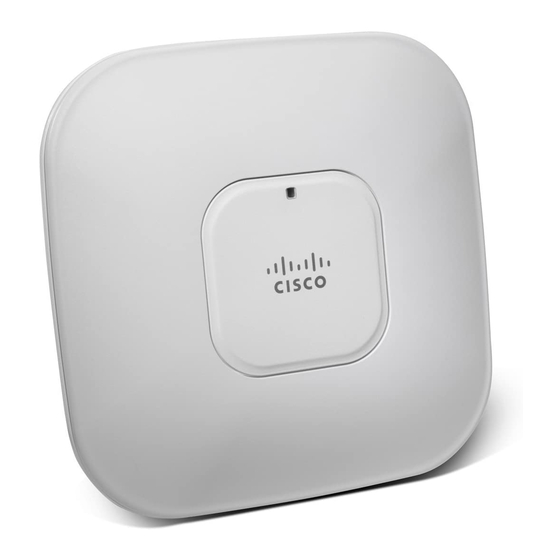Cisco Aironet AIR-CAP3602I-x-K9 Manuale introduttivo - Pagina 37
Sfoglia online o scarica il pdf Manuale introduttivo per Punto di accesso wireless Cisco Aironet AIR-CAP3602I-x-K9. Cisco Aironet AIR-CAP3602I-x-K9 41. Aironet 3600 series lightweight access points

13
Configuring DHCP Option 43 and DHCP Option 60
This section contains a DHCP Option 43 configuration example on a Windows 2003 Enterprise DHCP
server for use with Cisco Aironet lightweight access points. For other DHCP server implementations,
consult product documentation for configuring DHCP Option 43. In Option 43, you should use the
IP address of the controller management interface.
DHCP Option 43 is limited to one access point type per DHCP pool. You must configure a
Note
separate DHCP pool for each access point type.
The 3600 series access point uses the type-length-value (TLV) format for DHCP Option 43. DHCP
servers must be programmed to return the option based on the access point's DHCP Vendor Class
Identifier (VCI) string (DHCP Option 60). The VCI string for the 3600 series access point is:
Cisco AP c3600
If your access point was ordered with the Service Provider Option (AIR-OPT60-DHCP)
Note
selected in the ordering tool, the VCI string for the access point contains ServiceProvider. For
example, a 3600 with this option will return this VCI string:
Cisco AP c3600-ServiceProvider
The format of the TLV block is listed below:
• Type: 0xf1 (decimal 241)
• Length: Number of controller IP addresses * 4
• Value: List of WLC management interfaces
To configure DHCP Option 43 in the embedded Cisco IOS DHCP server, follow these steps:
Enter configuration mode at the Cisco IOS CLI.
Step 1
Step 2
Create the DHCP pool, including the necessary parameters such as default router and name
server. A DHCP scope example is as follows:
ip dhcp pool <pool name>
network <IP Network> <Netmask>
default-router <Default router>
dns-server <DNS Server>
Where:
<pool name> is the name of the DHCP pool, such as AP3602
<IP Network> is the network IP address where the controller resides, such as
10.0.15.1
<Netmask> is the subnet mask, such as 255.255.255.0
37
